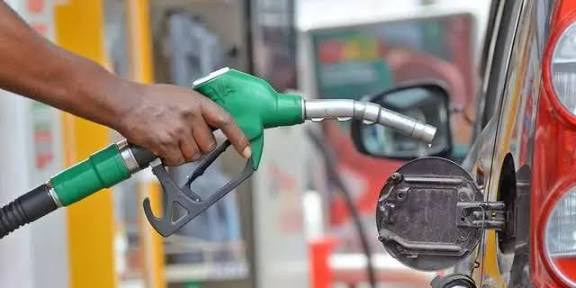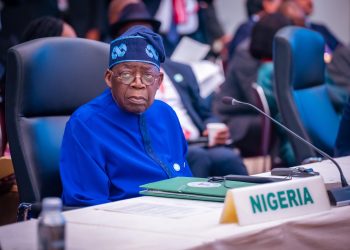Some energy experts have expressed concern over the Federal Government’s approval of a 15 per cent import duty on petrol and diesel, saying it may drive up fuel prices.
They expressed their concerns in separate interviews with our Correspondent on Saturday in Lagos.
Freedomonline reports that on Oct. 29, President Bola Tinubu approved a 15 per cent import tariff on petrol and diesel, a policy expected to raise the landing cost of imported fuel.
The experts said that the move could translate into higher pump prices for consumers, with some estimating an increase of up to N150 per litre or more.
Dr Ayodele Oni, Partner and Chair of the Energy and Natural Resources Practice Group, Bloomfield Law Practice, said the policy, though aimed at protecting local refining, could worsen inflation and cost-of-living pressures.
“The imposition of a 15 per cent duty will increase the landing cost of imported fuel, and this additional cost will be passed on to consumers.
“In a deregulated economy like Nigeria’s, where prices are determined by market forces, there’s a strong possibility of price volatility.” Oni explained.
Oni noted that the government’s stated objectives for the policy include strengthening national energy security, supporting domestic refining capacity, and ensuring competitive market stability.
“By making imported fuel more expensive, local refineries will become more competitive.
“This should, in theory, encourage domestic production and reduce dependence on imported fuel,” he said.
However, he warned that without adequate infrastructure and operational refineries, the policy could backfire, resulting in fuel scarcity and black-market activities.
“If local refining capacity remains weak, this duty could disrupt supply, as over 60 per cent of Nigeria’s fuel is still imported.
“The government must back this policy with infrastructural support, refinery rehabilitation, and efficient logistics to prevent scarcity,” Oni added.
Oni also emphasised that the increased duty would raise operational costs for importers and marketers, affecting competition and liquidity within the downstream sector.
“This policy could push out smaller independent marketers who may be unable to meet the new cost requirements, leaving the market dominated by larger players,” he said.
As an alternative, Oni advised the government to incentivise local refining through tax holidays, duty-free importation of refining equipment, and infrastructure investment rather than imposing heavy tariffs on imports.
Meanwhile, Petroleum Products Retail Outlets Owners Association of Nigeria (PETROAN), however, lauded the decision, describing it as a step toward achieving energy security and sustainable local refining.
Its national president, Dr Billy Harry, commended President Bola Tinubu for approving the duty, saying it would encourage investment in domestic refining and stabilise the downstream sector.
“This policy will increase local refining capacity, boost the economy, create jobs, and strengthen the Naira
“While there may be short-term challenges such as price hikes and job losses in the import sector, the long-term benefits outweigh the disadvantages” Harry said.
He urged the Nigerian Midstream and Downstream Petroleum Regulatory Authority (NMDPRA) to ensure that local refineries are properly regulated to prevent monopolistic tendencies.
“We must guard against a situation where a few refineries dominate the market. Monopoly could defeat the purpose of this policy,” he noted.
He also appealed to the Nigerian National Petroleum Company Ltd. (NNPC Ltd.) to guarantee adequate crude oil supply to local refineries to ensure consistent production and prevent scarcity.
A downstream operator who preferred anonymity raised questions about the current state of local refining and transparency in the sector.
“The government has supported local refineries through tax incentives and crude supply in naira, but the cost of locally refined products remains higher than imported fuel.
“Before imposing such tariffs, there should be full transparency about production levels, cost structures, and refinery efficiency,” the source said.
He cautioned that without clear data and accountability, the 15 per cent duty could worsen the situation by raising both local and imported fuel prices simultaneously.
“If imports become more expensive and local refineries can not meet demand, the outcome will be higher prices and scarcity,” he said.
He urged the government to critically assess the timing of the policy and ensure that refinery operations were capable of meeting national fuel demand before implementing the duty.
“Supporting local manufacturing isn’t bad, but it must be backed by transparency and realistic planning,” he added.
According to him, while the 15 per cent import duty aims to stimulate local refining and reduce dependence on imports, its success will depend on transparency, infrastructure, and effective regulation.


























